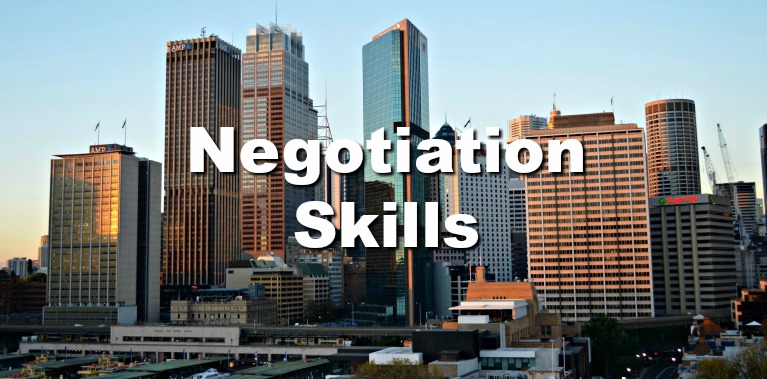6 Negotiation Tips that Almost Guarantee Success
In commercial real estate every day, there are many negotiation issues to work through. Some involve clients, while others will involve third parties to a transaction. You could say that, as a broker of property deals, you can be always learning when it comes to property and the many varied market conditions. The more that you learn about property situations and transactions, the better you can get.
What is happening out there? The property market changes regularly through the year, and on that basis, the terms of negotiation will vary based on market conditions, available listings, benchmark price or rent evidence, and the intentions or targets of the parties. You will be working with different parties and they will have different pressures. Go ‘deep’ on the actual situation of a transaction and gather the elements of negotiation before you go too far into any dialogue and the positioning of the parties.

Put Some ‘Deal Fun’ into Your Day
Of course, you can have fun with the idea and the challenges of multiple negotiations in your career; you can learn, grow, adjust, and improve your negotiation skills. There are many different client characters to know and work with; some you may choose to walk away from. You always have that choice so use it at the right time with people that are just too difficult to work with.
It is a bit of a ‘negotiation game’ when it comes to knowing the people, the property, and the pressures at play. I call them the ‘3 P’s of Negotiation’. Make sure that you have all the necessary preparation underway before you enter a negotiation with commercial real estate.

Real Estate Negotiation Checklist
Here is a negotiation checklist that comes will come in handy for most brokers and agents:
- Understand the parties to the transaction – there will be pressures and targets for both parties. There will also be limits on the deal, and that will be dictated by motivation, property availability, enquiry, and finance. Ask many questions of both parties as you prepare for the negotiation.
- Remember your client at all times – ultimately you are to represent the interests of your client and achieve an agreement that they are comfortable with. If you have been communicating and conditioning your client from the very beginning of the client relationship, then there will be some degree of consultation and trust that will help you get things moving towards a positive property outcome.
- Plan the targeted outcome for your client – tell your client what you are thinking and seeing with the offers that may be coming in. Use market evidence from the very start of things, so the client knows what will be a ‘market-proven’ transaction. Most buyers and tenants today fully understand what is ‘acceptable’ from a property perspective. They also know what their business and the property can mean to them in dollar terms. They will have limits and a budget beyond which they will not budge. Look for the limits and understand those facts.
- Choose the time and place of negotiating – don’t settle anything over the telephone if you can avoid it. Get in front of the people to the transaction so you can converse and communicate in a planned way. Remove distractions and diversions from the negotiations by choosing the place and the time of talking to both parties. It is also wise to keep the parties separate in all communications. You should be the only person that knows the communication channels, telephone numbers, and addresses of all parties. Be careful that you don’t release email addresses and anything like that which could allow the parties to communicate directly.
- Use comparable local property information regards the transaction and property – similar market evidence is hard to refute. The property owner or perhaps your client will have an inflated view on the outcome that they may seek. While optimism is a good part of a property transaction, don’t let things be ‘unrealistic.’
- The ultimate negotiation can be broken into small agreements – don’t stress about the size or complexity of a property negotiation. You can break it down into achievable stages. Move forward in stages an in steps. As you do that, keep notes of all conversations and transactions. When in any doubt stop and ask questions. Remove the ‘grey areas’ or misunderstandings as soon as they happen.
Take these facts and shape your negotiating skills. Improve them over time and become the ‘agent of choice’ when it comes to quality property locally.








